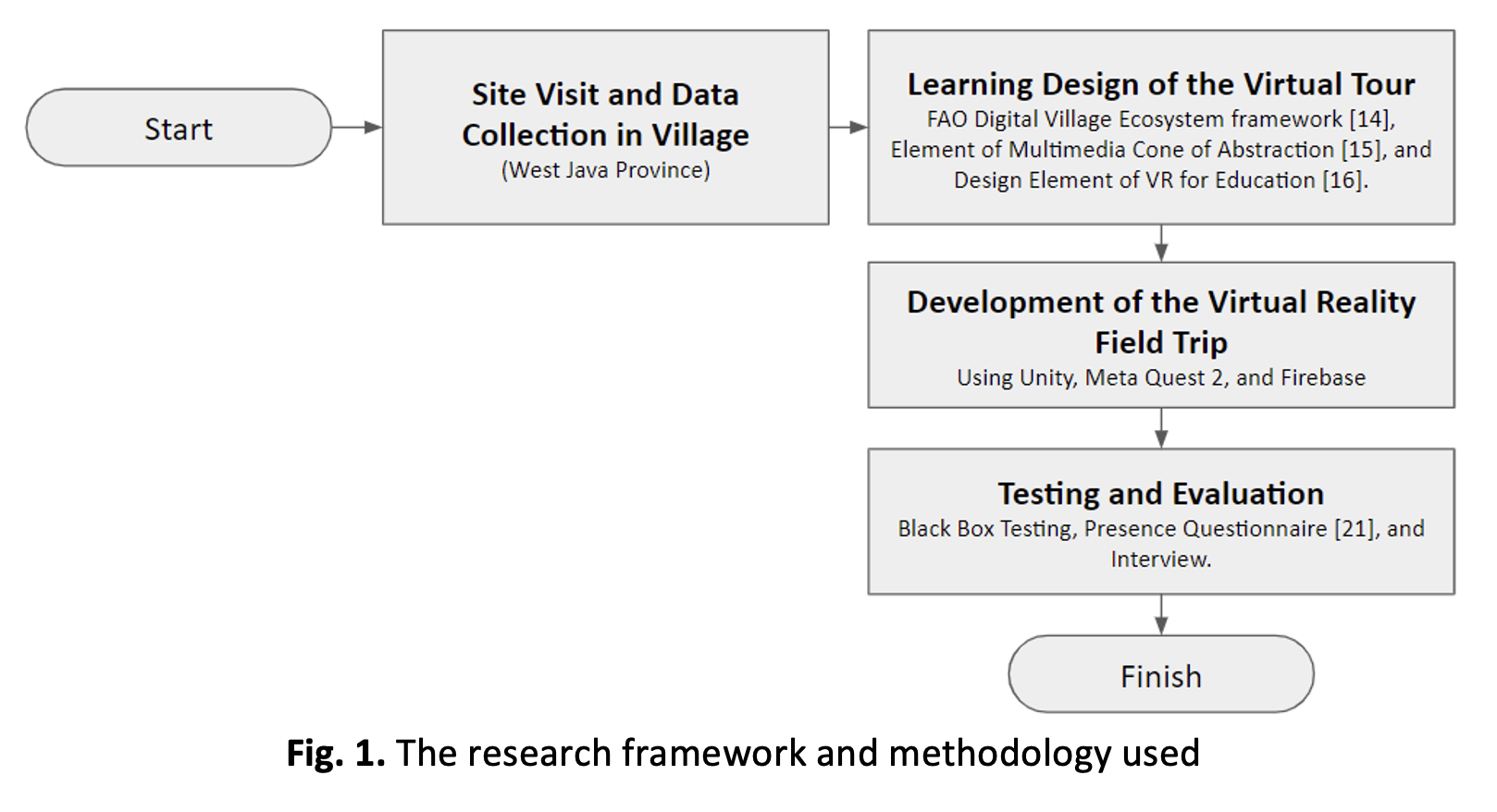Towards IPB Immersive Field Trip Platform: Virtual Reality Field Trip to Introduce Digital Village Ecosystem to Computer Science Students
DOI:
https://doi.org/10.37934/araset.37.2.8293Keywords:
Computer science education, digital village, immersive learning, virtual field trip, virtual realityAbstract
The virtual field trip format offers several advantages over a fully three-dimensional world, including its ease and cost-effectiveness in creation and development. By utilizing a 360 camera, capturing images becomes convenient, portable, and viable even in remote regions. With the amount of activity involving students and agricultural society, the potential for integrating these field trip experiences into a learning experience is significant in IPB University. Not only it able to help students understand the context before doing the actual field trip, it also able to improve their empathy to the society introduced through the virtual field trip. This research aims to present the development of a virtual reality tour to introduce digital village ecosystem to computer science students and measure its presence among the students. The 360 scenes were captured during a visit to a digital village in West Java, and an immersive learning plan was devised to introduce the digital village ecosystems. The learning path was designed based on the cone of learning principle. To evaluate the effectiveness of the virtual reality system, presence questionnaires were administered, a knowledge test was conducted, and interviews were carried out with 22 students. Research indicates that the virtual field trip successfully introduced one digital village ecosystem in Cibodas, West Java Province. Students were able to explore the village site, learn about the digital village ecosystem, and provide valuable feedback. The presence questionnaire yielded a score of 5.49 out of 7, indicating a positive immersive experience. The two are of improvements are Involvement (4.96 of 7.00) and Distraction Factor (5.20 of 7.00). The interviews identified areas for improvement, such as enhancing content quality and increasing natural interaction within the system. In conclusion, this research has laid the foundation for the IPB Immersive Field Trip Platform by developing a virtual field trip that introduces computer science students to a digital village ecosystem. The findings demonstrate promising results and provide insights for further refinement of the platform.
Downloads





























